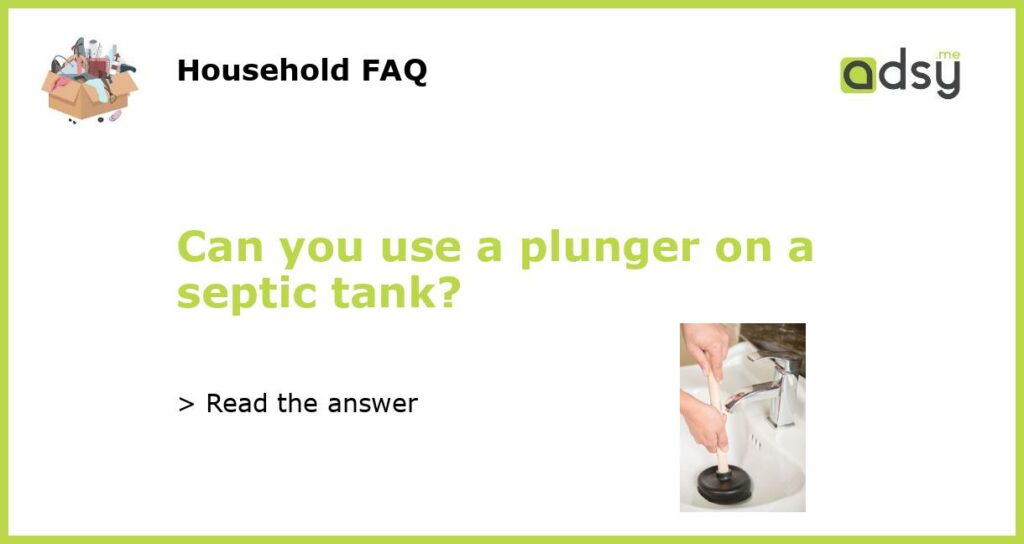Understanding Septic Tanks and Their Functionality
Septic tanks are underground structures that are designed to collect and treat wastewater from homes and buildings that are not connected to public sewage systems. Septic tanks contain a series of compartments, where solids are retained and broken down by bacteria that thrive in the tank. The treated effluent that comes out of the septic tank then flows into a drain field where it undergoes further treatment and disposal.
What is a Plunger?
A plunger is a simple tool that is used to clear clogs in plumbing systems. It consists of a rubber cup that creates a vacuum when pressed against a drain opening and a handle that is used to push and pull the cup against the drain. The suction that is created dislodges clogs in the drain and allows water to flow freely.
Can You Use a Plunger on a Septic Tank?
While a plunger is an effective tool for clearing clogged drains, it should not be used on septic tanks. Plumbers and septic system professionals do not recommend using a plunger on septic tanks because it can cause damage to the tank’s fragile infrastructure. Using a plunger can also push solids and materials further into the tank, which can cause blockages and clogs in the drain field, resulting in costly repairs.
What Are the Alternative Ways to Maintain Septic Tanks?
One of the best ways to maintain a septic tank is to practice good household habits. Avoid flushing anything other than toilet paper and human waste down the toilet. Do not pour oil, grease, or harsh chemicals down the drain as this can harm the bacteria in the tank and cause blockages. It’s also important to have the septic tank professionally pumped every 3-5 years to prevent solids and debris from accumulating and causing damage.
Septic tanks are an essential part of home wastewater management systems. While plungers are useful tools for clearing clogs in plumbing systems, they should not be used on septic tanks. Instead, homeowners should practice good habits such as avoiding flushing non-biodegradable materials down the drain and having the septic tank professionally pumped to ensure it functions properly. Taking care of your septic tank will prolong its lifespan and save you from costly repairs down the road.






